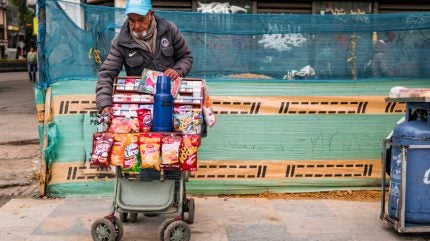
The food packaging industry in Latin America is undergoing significant changes as new regulations come into effect, driving a shift towards more sustainable and transparent practices.
These regulations, particularly in countries like Mexico, Chile, Argentina, Colombia, and Brazil, are reshaping how food products are packaged and labelled, pushing businesses to adapt to a growing focus on public health and environmental sustainability.
Stricter labelling for healthier choices
One of the most notable regulatory changes in Latin America is the implementation of front-of-pack warning labels. These labels indicate when a product exceeds recommended levels of sugar, sodium, or saturated fats.
In Mexico, for instance, the Norma Oficial Mexicana NOM-051 has significantly impacted consumer habits, resulting in a 25% reduction in the consumption of products bearing these warning labels.
As a result, many food manufacturers are being compelled to reformulate their products and redesign their packaging to avoid these labels, which has led to a greater emphasis on healthier food options.
Shifting toward a circular economy
Chile has also introduced groundbreaking legislation aimed at encouraging sustainability in packaging.
The Ley de Responsabilidad Extendida del Productor (REP) requires companies to take responsibility for managing the waste produced by their products, promoting the use of recyclable materials and designs that facilitate recycling.
This aligns with the country’s commitment to the circular economy. Complementing this, Chile’s Ley de Plásticos de un Solo Uso seeks to reduce single-use plastics, particularly in food services, by encouraging the use of biodegradable alternatives.
This move towards sustainable materials is making a clear mark on the packaging sector.
Embracing innovation for sustainability
In Colombia, significant steps are being taken to address plastic waste, with regulations targeting the gradual reduction of single-use plastics.
These regulations are encouraging the adoption of biodegradable and recyclable materials and providing clear timelines for eliminating specific plastic products.
As a result, food packaging companies are investing heavily in research and development to create innovative packaging solutions that comply with these regulations while enhancing the consumer experience and reducing environmental impact.
This includes exploring new materials, extending product shelf life, and incorporating technologies for better food traceability.
Ultimately, the evolving packaging regulations in Latin America are driving a transformation in the food packaging sector. Companies that adapt to these changes will not only meet regulatory standards but also cater to a growing consumer base that is increasingly concerned about health and sustainability.
As these regulations continue to evolve, the industry is poised to become more sustainable, with packaging innovations playing a pivotal role in reducing environmental impact.



